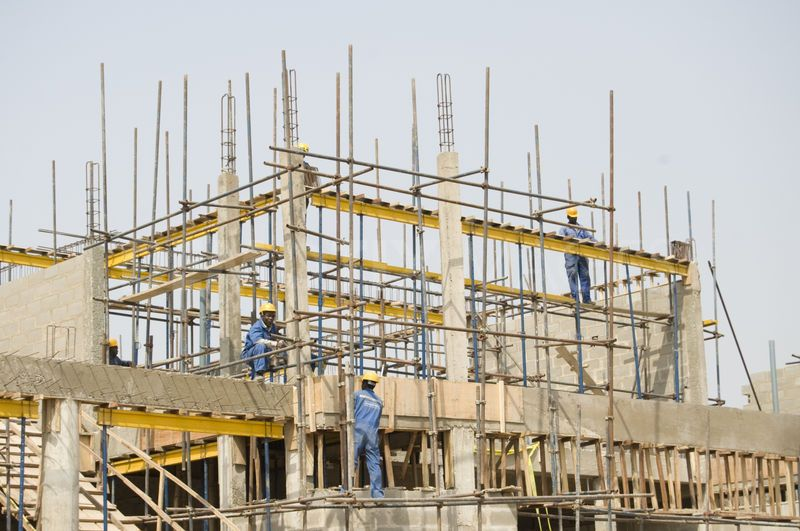Lagos State’s decision to blacklist 176 estates for operating without approvals is a stern reminder that property development thrives on regulatory compliance.
On Monday, 4th August 2025, the Ministry of Physical Planning and Urban Development published a list of affected estates in fast-growing areas like Ibeju-Lekki, Epe, Eti-Osa, and Ajah. Developers were given 21 days to regularise their documentation or face sanctions.
This development has renewed attention on how estate approvals work in Lagos and the role of professional bodies in ensuring legal property development.
Key steps in estate approval
Acquire Planning Permit
The first step begins with obtaining planning permission. In Lagos, the Lagos State Physical Planning Permit Authority (LASPPPA) issues planning permits for buildings, and layout approval from the New Towns Development Authority (NTDA) under the supervision of the ministry. LASPPPA runs the e-Planning Permit system, where applicants can file documents, track processing, and respond to queries online.
Stage-by-stage building inspection
Once permits are secured, the Lagos State Building Control Agency (LASBCA) oversees construction. It conducts inspections at each stage to ensure structural consistency and issues a certificate of completion and fitness for habitation once the project meets the standards.
Land title and certificate of occupancy
Land titling protects buyers. Survey plans should be verified at the Office of the Surveyor-General of Lagos State (OSGL), which keeps “record copies.” Developers can also confirm the land’s status at the Land Registry via the eGIS portal.
After purchase and title perfection, eligible owners can pursue a Certificate of Occupancy through the Lands Bureau following established steps.
Environmental compliance
Depending on project size and sensitivity, developers may require an Environmental Impact Assessment (EIA) or Environmental and Social Impact Assessment (ESIA) from the Lagos State Environmental Protection Agency (LASEPA).
For federal-level projects, the Ministry of Environment’s provides guidelines for EIA procedures and charges.
Safe practices for buyers
Homebuyers and residents also have a checklist that can prevent disappointments. Before committing funds to a “new estate,” ask for the NTDA layout approval letter and verify it with the ministry.
Confirm the planning permit status of any structure you intend to buy via LASPPPA and request LASBCA’s stage inspection records or a fitness for habitation certificate where applicable.
Pause If you are told that papers will be made available later; More often, missing documents are red flags that could lead to demolitions or court cases in the long run.
Where can citizens and small developers seek help and guidance?
Start with professional bodies that uphold standards. The Real Estate Developers Association of Nigeria, or REDAN, is the umbrella group for developers that offers guidance and capacity-building content for members.
Another viable platform is the Nigerian Institution of Estate Surveyors and Valuers (NIESV). It has national and Lagos platforms that can connect people to regulated professionals.
For planning consultancy, design compliance, and layout preparation guidance, the Nigerian Institute of Town Planners (NITP) and its Lagos Chapter maintain practitioner networks and best practices.
Residents can verify agents, lodge complaints, and seek mediation through LASRERA for consumer protection.
The blacklist may be disruptive, but it is a call to safer practices. Developers must adhere to the laid-down regulatory guidelines in order to forestall future complications.
For buyers, due diligence is non-negotiable. The lessons from Lagos apply not only to local realtors but also to developers and property seekers across Nigeria.
Lagos State has blacklisted 176 estates for operating without necessary approvals, emphasizing the importance of regulatory compliance in property development. Developers have 21 days to regularize their documentation or face legal consequences. Estate approval involves several steps: obtaining planning permits from the Lagos State Physical Planning Permit Authority, undergoing stage-by-stage building inspections by the Lagos State Building Control Agency, securing land titles and certificates of occupancy through the Lands Bureau, and ensuring environmental compliance with potential Environmental Impact Assessments from LASEPA.
Buyers are advised to verify planning permits and request inspection records to avoid legal issues. Professionals in real estate development can seek guidance from REDAN, NIESV, and NITP for standard practices, while citizens can use LASRERA for consumer protection. This move serves as a wake-up call for developers to adhere to proper guidelines and for buyers to conduct thorough due diligence, reflecting broader implications for real estate practices across Nigeria.






